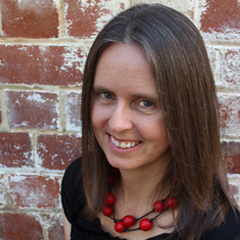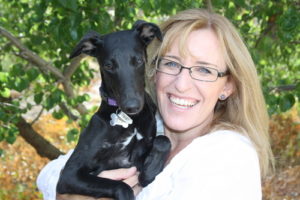A second compilation of Laugh your head off was released by Pan Macmillan on October 25, and we asked three new contributors to answer three questions for us. 
We asked Meg McKinlay:
 What makes you laugh?
What makes you laugh?
So many things! I like silly wordplay, absurdist humour, unexpected juxtapositions. I tend to favour the droll, the dry, the deadpan. I’m not a fan of slapstick humour and most sitcoms leave me cold. Canned laughter is the worst.
What are the joys and/or challenges of writing humorous stories, particularly for young people?
The joy is cracking myself up at my desk; there’s nothing quite like giggling like a fool while writing. The challenge is that what cracks me up might not have the same effect on others. Humour can be very subjective and I’m conscious that I’m much older than my target audience. When I was invited to submit a story for Laugh Your Head Off Again, the seemingly simple direction “The only requirement is that stories are funny” struck fear into my heart. In the end, I think I just trust that my sense of humour will at least translate for some readers.
What is it you tell yourself to keep from taking yourself (or your writing) too seriously?
I can’t say that this is really a goal of mine. I do like laughing at myself and don’t find that difficult to do but I also take most things pretty seriously, including my writing. Even when I’m writing humour, there’s still some serious craft involved – just like a comedian’s seemingly off-the-cuff banter has likely been refined over a long period of time.
We asked Jaclyn Moriarty:

We asked Katrina Nannestad:
 What makes you laugh?
What makes you laugh?
What are the joys and/or challenges of writing humorous stories, particularly for young people?
Writing humorous stories is a delight. Every day, I giggle, daydream, write naughty stuff and laugh out loud. This is the best job I’ve ever had. The ultimate reward is when I learn that my stories have brought laughter to children’s lives. Spreading joy and promoting literacy seem like valuable things to be doing with my time. The challenge in writing humorous stories for children is to keep control of my galloping imagination. I get carried away sometimes. I end up with so much slapstick action and so many plays on words that the story becomes overloaded. I have to prune back the craziness and fill the gaps with quieter, more reflective moments so the reader gets time to catch their breath.
What is it you tell yourself to keep from taking yourself (or your writing) too seriously?
Have fun. Laugh often. It’s good for the soul. It’s good for your writing too!




